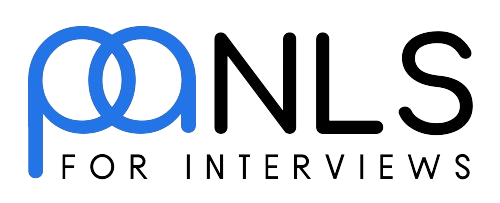In Person Interview Meaning: Definition, Benefits & How to Ace It in 2025

If you’re looking to understand the in person interview meaning, you’re not alone. With the rise of virtual hiring trends, many job seekers and professionals are reevaluating the significance of traditional face-to-face interviews. In this article, you’ll learn exactly what an in-person interview is, how it differs from remote interviews, and why it still plays a critical role in today’s job market.
Even as remote work gains popularity, the in person interview meaning continues to hold weight for employers and candidates alike. Whether you’re preparing for a career-defining opportunity or exploring the hiring process, grasping the in person interview meaning can give you a competitive edge in 2025 and beyond.
Companies often include in-person interviews after assessing candidates through technical assessments or aptitude tests, ensuring only the top-tier talent reaches the final round.
What Is the In Person Interview Meaning?
The in person interview meaning refers to a structured, face-to-face conversation between a job candidate and an employer, typically conducted at the company’s office or a mutually agreed location. It is one of the most established formats of interviewing and usually follows preliminary screening stages like phone calls or virtual interviews.
In-person interviews are used to evaluate a candidate’s communication skills, cultural fit, professional demeanor, and non-verbal cues. While digital interviews assess surface-level responses, in-person conversations allow hiring managers to make deeper assessments and more confident hiring decisions.
Understanding the in person interview meaning is essential because it helps candidates prepare mentally and physically for an interaction that is often more immersive and evaluative than virtual formats.
Benefits of In Person Interviews
Recognizing the in person interview meaning becomes even more important when you consider the distinct benefits this format offers over remote alternatives. Some of the most valuable advantages include:
- Stronger Communication and Rapport: In-person interactions foster better eye contact, tone, and interpersonal engagement. Building genuine rapport is easier face-to-face.
- Observation of Non-Verbal Cues: Employers can assess body language, posture, expressions, and professionalism in a way that virtual platforms simply can’t replicate.
- Minimal Technical Disruptions: With no risk of connectivity issues, time delays, or poor audio, the flow of conversation remains smooth and uninterrupted.
- Faster and More Decisive Outcomes: In-person interviews often lead to quicker follow-ups, feedback, and hiring decisions. The energy in the room can be a deciding factor in the final outcome.
The in person interview meaning becomes even clearer when you understand how critical these subtleties are to hiring managers who value human insight over algorithms.
How to Prepare for an In Person Interview
Now that you understand the in person interview meaning, let’s break down how to prepare effectively for one. Preparation is key to standing out and showing you’re the best fit for the role.
Research the Company and Role Thoroughly:
- Visit the company’s official website to learn about their mission, recent achievements, and culture.
- Review the company’s LinkedIn page, recent press releases, and team profiles.
- Understand the job description in detail and align your experience with it.
Practice Common Interview Questions Using the STAR Method:
- Structure your answers using the STAR format: Situation, Task, Action, and Result.
- Focus on real-world examples that show problem-solving, leadership, and initiative.
- Rehearse behavioral questions like, “Describe a time you overcame a challenge.”
Plan All Interview Day Logistics:
- Choose your outfit in advance based on the company’s dress code—when in doubt, dress professionally.
- Map out your travel route and plan for contingencies like traffic or public transit delays.
- Prepare your interview materials: copies of your resume, a notepad, a pen, and a folder.
Prepare Questions for the Interviewer:
- Asking intelligent questions shows initiative and engagement.
- Good options include: “How does your team define success?” or “What does a typical day in this role look like?”
Mastering these steps will help you approach the in person interview meaning with confidence and clarity.
If you’re preparing for a technical role, reviewing C interview questions or brushing up on concepts like JPA vs Hibernate might be beneficial.
Top In Person Interview Questions and How to Answer Them
Understanding the in person interview meaning means being ready for the types of questions that are commonly asked in this format. Interviewers expect candidates to show thoughtfulness, confidence, and alignment with the company’s goals.
Here are some commonly asked questions and how to approach them:
- Tell me about yourself: Summarize your background, highlight relevant experience, and connect your story to the role you’re applying for.
- What are your strengths? Focus on strengths that match the job description and back them with real examples.
- What are your weaknesses? Choose a real but minor weakness and explain how you’re working on improving it.
- Why should we hire you? Tie your skills, experience, and enthusiasm to the job and company.
- Where do you see yourself in five years? Show ambition and a desire for long-term growth within the company or industry.
- Describe a time you solved a difficult problem: Use the STAR method to explain the situation clearly and show your problem-solving abilities.
- What motivates you at work? Be honest and align your motivation with the company’s values.
- What animal best represents your personality? Choose one that reflects qualities the company values, and explain your reasoning creatively.
Preparing for these questions ensures you’re not caught off guard and understand how the in person interview meaning applies in a real-world scenario.
Expert Tips to Ace Your In Person Interview
To fully embrace the in person interview meaning, it’s essential to go beyond basic preparation. These expert strategies will help you leave a lasting impression:
- Greet your interviewer with a firm handshake and a confident smile.
- Use the interviewer’s name during the conversation to build familiarity.
- Speak clearly and maintain good posture.
- Mirror the energy and tone of the interviewer when appropriate.
- Allow pauses to think before answering difficult questions—this shows thoughtfulness.
- Bring printed copies of your resume, even if you’ve already submitted it.
- Thank the interviewer sincerely at the end and follow up with a polite email.
Each of these actions reinforces the importance of understanding the in person interview meaning as a dynamic, live interaction—not just a verbal exam.
Common Mistakes to Avoid During In Person Interviews
Knowing the in person interview meaning also involves knowing what not to do. Avoid these common mistakes:
- Arriving late or too early, which shows poor time management.
- Underdressing or overdressing for the company culture.
- Talking too much or giving robotic, rehearsed answers.
- Failing to research the company and role beforehand.
- Interrupting the interviewer or failing to listen carefully.
- Not asking thoughtful questions when given the chance.
- Showing signs of nervousness that you haven’t addressed, like fidgeting or avoiding eye contact.
Avoiding these errors will strengthen your understanding of the in person interview meaning and increase your chances of success.
Why In Person Interviews Still Matter in 2025
With AI tools, asynchronous interviews, and virtual assessments on the rise, some might wonder if the in person interview meaning is outdated. It’s not. In fact, it’s evolving to play an even more strategic role.
In-person interviews remain crucial because they:
- Build real human trust, which technology alone can’t replicate.
- Allow companies to assess cultural fit more effectively.
- Offer candidates the opportunity to observe the workplace environment.
- Are essential for leadership roles and roles requiring interpersonal skills.
- Encourage honest conversations without technological barriers.
In today’s hybrid world, the in person interview meaning is more than tradition—it’s a bridge to deeper understanding between employers and candidates.
Final Interview Checklist
Before you walk into that interview room, here’s a quick checklist to review:
- Polished, appropriate outfit selected
- Copies of your updated resume printed
- Directions to the location double-checked
- Arrival time planned with buffer
- Prepared answers using the STAR format
- Questions ready for the interviewer
- Confident, positive mindset
- Thank-you email drafted in advance
Keeping this checklist in mind reinforces your command of the in person interview meaning and ensures a smoother experience.
Streamline Technical Hiring with Panls.ai
Understanding the in person interview meaning isn’t just for job seekers—it’s just as vital for employers trying to create better hiring processes.
What is Panls.ai?
Panls.ai is a cutting-edge platform offering Interview-as-a-Service (IAAS) for companies seeking qualified, reliable technical interviewers on-demand.
Why use Panls.ai?
- Reduces the time-to-hire significantly
- Maintains consistency and fairness in technical assessments
- Eliminates interviewer bias and burnout
- Improves candidate experience and post-interview insights
Ready to optimize your hiring process? Visit Panls.ai to connect with expert interviewers and streamline your hiring—from screening to final interviews.
Frequently Asked Questions
It refers to a face-to-face meeting between a job candidate and employer, typically held at the workplace or neutral venue.
They allow for more natural communication, better judgment of soft skills, and stronger rapport.
They usually last between 30 minutes to 90 minutes, depending on the role and number of interviewers.
Dress formally unless otherwise instructed. When unsure, opt for business professional attire.
Bring several printed resumes, a notepad, pen, and a list of questions for the interviewer.
Yes, but doing so may impact how you’re evaluated if the role requires a strong in-person presence.
Practice answers aloud, prepare well, and do breathing exercises to stay calm and composed.
Confidence, eye contact, clarity in communication, personality fit, and genuine interest in the role.
